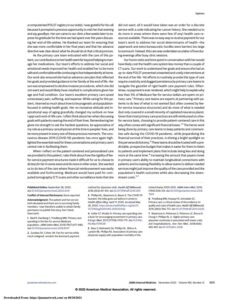 In a matter of months, coronavirus 2019 (COVID-19) has transformed not just how we live but also how we leave this world. Physicians and nurses struggle to accompany patients who die alone and support families who cannot follow the usual customs of grief: gathering at hospitals, attending funerals, sitting shiva.
In a matter of months, coronavirus 2019 (COVID-19) has transformed not just how we live but also how we leave this world. Physicians and nurses struggle to accompany patients who die alone and support families who cannot follow the usual customs of grief: gathering at hospitals, attending funerals, sitting shiva.
The pandemic has made us contend with loss in new and unexpected forms. Calling primary care patients for virtual appointments, I walk into sudden eruptions of grief, like minefields—entire families who succumbed to COVID-19 infection, elderly adults confined in isolation and fear, and patients whose treatments for other illnesses have been deferred to disastrous effect. With distance precluding the comfort of community, we bear witness to these casualties through private rituals, whether a post-shift shower to wash away the enormity of pain or a moment of stunned reflection after hanging up the telephone. Ultimately, we must make peace with the volatility of grief and its messy presence. In medicine, the art of losing is still the hardest one to master.


